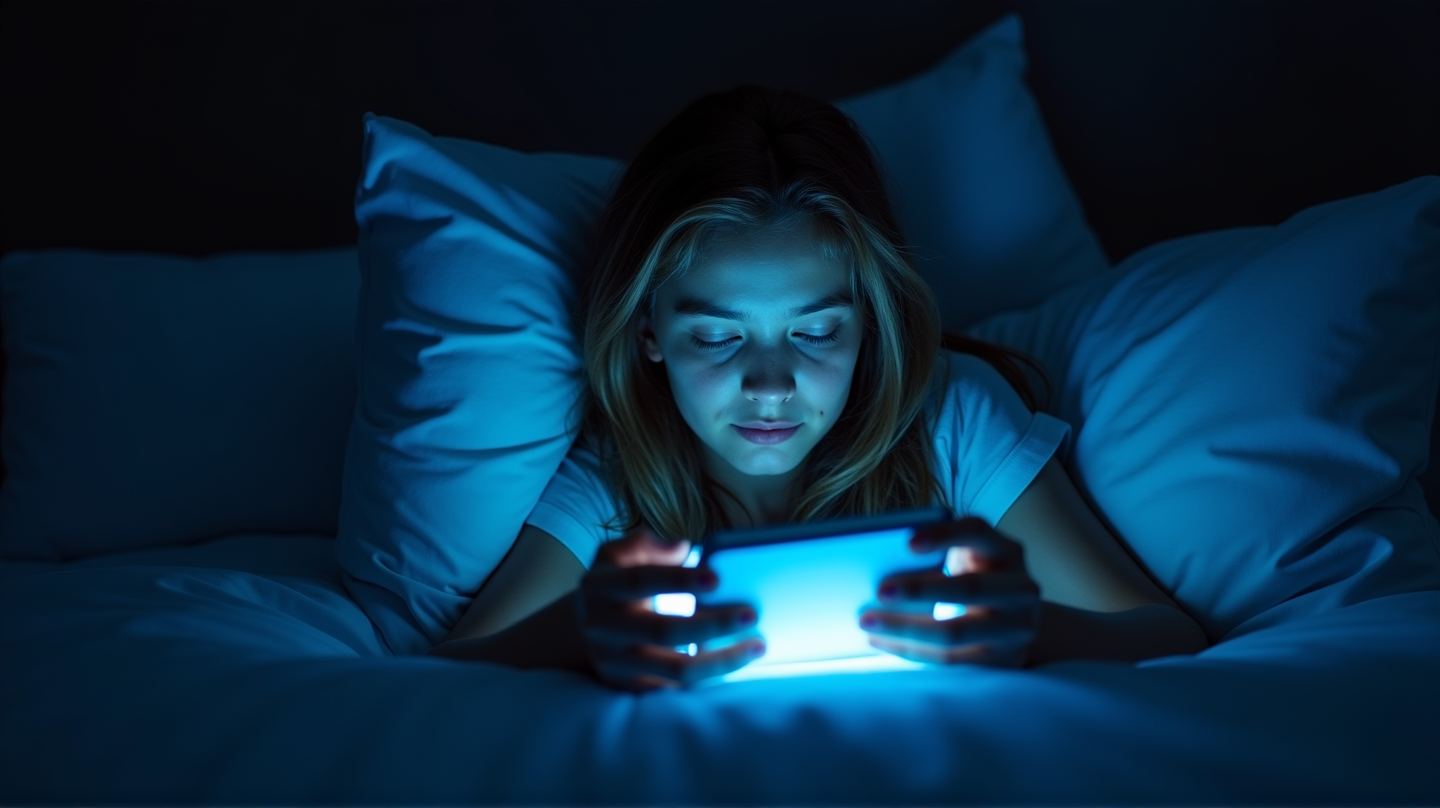In today’s digital age, our smartphones are often the final farewells we bid goodnight to. But a new revelation has emerged from Norway, warning us of the possible repercussions of this nightly habit. It turns out, the romanticized notion of scrolling social media before bed might be stealing more than just our time. According to a Norwegian study detailed in Frontiers in Psychiatry, engaging in screen time activities like social media can significantly increase the risk of insomnia and reduce sleep duration.
Screen Time’s Silent Saboteur
The study involved a massive cohort of 45,202 young adults aged 18 to 28, observing how various screen-based activities affected their slumber. Alarmingly, the results revealed that every additional hour of screen time before bed spiked insomnia risk by 59% and shaved off an average of 24 minutes of sleep. This positions the blue-wavelength light from our screens as a formidable antagonist in the quest for restful nights.
The Blue Light Debate
There has long been an ongoing debate about blue light exposure and its role in disrupting sleep. Previous studies suggested that blue light disturbs melatonin production, the hormone that fosters our sleep. In response, many devices now offer blue-light filters for evening use. But does all bright light matter equally? A pertinent discussion arises as new research challenges the dominance of blue light in interrupting sleep, suggesting even light of different hues carries potential disruptions.
Personalized Sleep Responses
Interestingly, not all of us bear the brunt of blue light equally. Like the flicker of a candle, the way light suppresses melatonin differs wildly among individuals. Factors such as genetics and sensitivity to light vary; hence, what wrecks sleep cycles for some, may leave others untouched. As Jonathan Cedernaes, a sleep expert, emphasizes, recognizing these differences is critical to understanding our unique sleep responses.
Practical Sleep Hygiene Tips
Despite these revelations, Dr. Leah Kaylor advises prioritizing good sleep hygiene as the axe against this digital menace. Avoid using screens in bed or switch to activities like listening to soothing music. Additionally, activate night-time blue-light filters on devices and be consistent with your bedtime schedule. Silence notifications during sleep hours to ensure no external disruptions disrupt your rest. These strategies pave a path to reclaiming peaceful, uninterrupted slumber.
The Underestimated Impact
Sleep is the cornerstone of health, intricately weaving into our well-being. Chronic sleep deprivation links closely with numerous health risks, including hypertension, diabetes, depression, and cardiovascular illnesses. As technology advances, unlocking the dynamics between digital consumption and our health remains pivotal. While the debate around blue light rages on, implementing mindful tech habits before bedtime is wise.
Shed light on your own night-time routines, and defend your health by reclaiming those precious hours of restorative slumber from the grasp of an ever-demanding digital world.
According to The Independent Uganda, this study adds substantial evidence to the conversation around tech use and sleep quality, urging us to reconsider our nightly habits.
